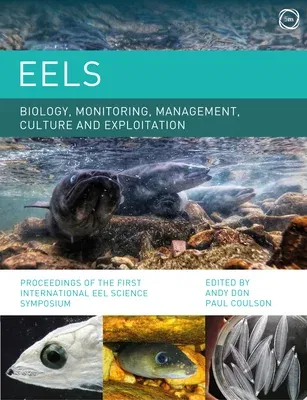The freshwater eels, the Anguillids, have increasingly become the focus
of attention for fisheries managers, scientists, researchers, policy
makers, conservation bodies and other stakeholders. These species can be
seen as a bellwether for issues affecting aquatic ecosystems - their
steep decline and the management initiatives to try and reverse this
trend, touch on subjects as diverse as disconnected waterways, loss of
habitat, novel parasites, pollution, over-fishing and climate change.
There are some 16 species of the Anguilla genus and all exhibit similar
lifestyles, growing in waters often far-removed from their marine
spawning grounds. These enigmatic, contradictory and confounding species
share similar challenges and pressures wherever they are found. This
book was generated from the 1st UK International Eel Science Symposium
which was held at the Zoological Society of London (ZSL) in June 2017.
Hosted by the Institute of Fisheries Management (IFM), the ZSL, and the
Environment Agency (EA), the Symposium was heralded as a success, with
over 180 delegates in attendance. Many of the world's top eel
specialists attended or gave presentations across a diverse range of
subjects. This was one of the Symposium's, and now the book's great
strengths - its diversity of subjects and authors. Many countries are
represented within the book, from across Europe and as far afield as New
Zealand, South Africa, Vanuatu, French Polynesia, Japan, Canada and the
USA. The EA and IFM have collaborated to produce this landmark book
which includes a mix of cultural, scientific and management information
which will be invaluable to anyone with a professional or personal
interest in these mysterious fish, including ichthyologists, fisheries
scientists and managers, aquaculture personnel, environmental biologists
and ecologists, marine and freshwater biologists, vertebrate zoologists,
animal behaviourists and students studying in all these areas. Libraries
in all universities and research establishments where these subjects are
studied and taught should have copies on their shelves.

